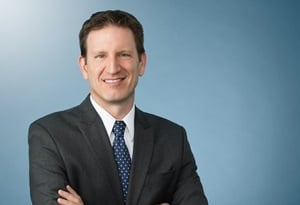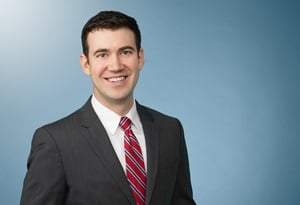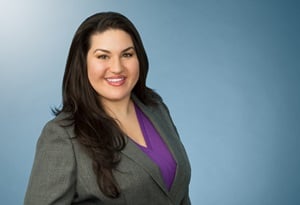Charting a New Course: Labor and Employment Under the Biden Administration
A Multipart Series
Webinar
Overview
Please join Faegre Drinker for “Charting a New Course: Labor and Employment Under the Biden Administration,” a fast-paced series of webinars exploring the latest developments in labor and employment law as well as legislative and regulatory priorities moving forward. Our presenters will zero in on the new administration, the hopeful wind-down of a once-in-a-century pandemic and the radically different world of work before us, and will equip you with critical insights to help field whatever the next four years hold.
Webinars in This Series
Session 1: Labor Law Under the Biden Administration — Fasten Your Seat Belts!
The first year of the Biden administration will be chock-full of labor law changes (and challenges) for employers. Our series kickoff will open with an up-to-date summary of 2021 developments. Then, we will look into the crystal ball for other likely labor law changes looming on the horizon, and provide practical tips on how union and nonunion employers can adapt to satisfy them.
Session 2: Leave Programs and Disability Accommodation – How Can We Help?
Employer policies and practices for leave and time off benefits and disability accommodations have evolved at a rapid pace, due to the extraordinary circumstances created by the COVID-19 pandemic and a growing morass of state and local requirements. And with the Biden administration expected to bring greater employee protections in these areas, the compliance challenges will only multiply. Join us for a discussion on recent and potential developments and practical approaches to keep your programs current.
Session 3: Employment Litigation Trends — The Pandemic and Beyond
In 2020, the pandemic not only upended our personal lives, it transformed how we did business — and employment litigation was no exception. At the same time, the crisis spawned demands for employment-related legal reforms, ranging from immunity for workplace liability to more stringent standards for workplace safety. But how many of those reforms became law? And is virtual litigation here to stay? Our panelists will discuss what changed in 2020 and what is business as usual. We will also provide predictions about the post-pandemic employment litigation world and how litigation trends could be further impacted by the enforcement priorities of the Biden administration.
Session 4: Restrictive Covenant Trends – Will the Ties Still Bind?
The laws addressing noncompetes and other employee restrictions are in flux. Over the last few years, numerous states — and now the District of Columbia — have passed new laws limiting (and in some cases effectively eliminating) the use of such restrictions and setting traps for the unwary in the form of notice and other procedural requirements. On top of this, there is new activity around so-called “no poach” agreements at both the state and federal level. And remote work is only exacerbating the trend. Come hear members of our employee mobility and restrictive covenants team discuss how to navigate these developments.
Session 5: Digital Nomads, the Gig Economy and Legal Compliance — Oh My!
Topics we’ll discussed include:
- Digital nomads: who they are and why they’re relevant now
- Employee-specific factors that affect whether employers may be willing to accommodate requests to work remotely from non-U.S. jurisdictions
- Analyzing potential solutions to allow digital nomads to work remotely
- In light of the pandemic making remote work more attractive to many, numerous countries and regions have enacted regulations and legal requirements to support remote work and encourage digital nomads to visit their countries.
Session 6: All Things Wage/Hour: Time Really Is Money
In this session we will cover all things wage-and-hour. We will start with pandemic-related Fair Labor Standards Act (FLSA) issues, what’s been developing under the Biden administration in the last seven months, and the Department of Labor’s independent contractor and joint employment rules. Additionally, we will touch on developments coming out of California, including paying meals and rest period penalties, a plaintiff’s standing to sue under the Private Attorneys General Act (PAGA), and the statute of limitations under PAGA. Lastly, we will discuss current trends in litigation — what we see now and what we anticipate in the future.
Session 7: Workforce Disaster Preparedness: Have We Learned Much Lately?
Recent events including the COVID-19 pandemic, catastrophic wildfires and hurricanes, increased cybersecurity and workplace violence threats, and major social unrest have challenged employers to maintain business continuity. Have we learned from these experiences? Join us for reflection on employment-related actions organizations have taken to address such situations, what has worked well and what has not, and how to be as prepared as possible for whatever emergency circumstances may come your way.
Session 8: Employment Policies: Navigating Deep Waters
When implementing and applying workplace policies, employers must navigate a complex network of federal, state and local employment laws. Navigating that network has become more challenging in the past year with significant changes to employment laws at the state and local level, and the ushering in of a new administration in Washington, which has signaled that federal agencies will broadly enforce federal employment laws.
In this webinar, we will discuss some significant changes in federal, state and local employment laws and the impact those changes may have on employment policies. The webinar will also provide guidance to employers regarding compliance with these new laws, and offer practical tips in terms of both legal compliance and best practices.
Session 9: It’s a Wrap: Year-End Reflections and Predictions
2021 has been another challenging year for employers and employees. As we come to the end of the first year of the Biden administration and approach the two-year anniversary of the COVID-19 pandemic, members of our national labor and employment team will reflect on major developments over the last 12 months, and highlight what employers should be thinking about as we prepare to start 2022.
In this session, we will discuss:
- Labor law developments under the Biden administration.
- The impact of President Biden’s executive order for federal contractors, the CMS Rule and the OSHA ETS, and related legal challenges.
- EEOC guidance and developing state laws regarding COVID-19 mandates and exemptions.
- The continuing impact of COVID-19 on when, where and how work is performed.
- Looking ahead: what challenges will employers likely face in 2022?
Questions? Please contact Kelley Stephens or call +1 317 237 1161.
Continuing Education Credit
This program will be sent to the following state bars requesting approval: CA, CO, CT, DE, IA, IL, IN, MN, NJ, NY, PA, TX and VA. As well as HRCI/SHRM.
All approvals are at the decision of the state bar based on content and deadlines.
No applications are currently pending.
The CLE provider for this event, CEU Institute (national CLE provider) will seek 1.0 hour General Law credit for this program.























